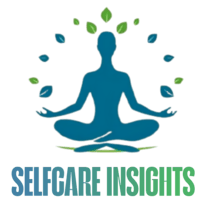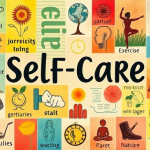
How Journaling Can Help You Overcome Anxiety and Find Clarity
Benefits of Journaling for Anxiety

Journaling can serve as a powerful tool for individuals struggling with anxiety. By putting pen to paper, individuals can externalize their inner thoughts and emotions, gaining a clearer understanding of their triggers and negative thought patterns. This process can help them identify recurring themes and situations that contribute to their anxiety, allowing for more targeted and effective coping strategies.
Additionally, journaling enables individuals to express their emotions in a safe and non-judgmental space. By releasing pent-up feelings onto the page, individuals can experience a sense of relief and catharsis, which can contribute to a reduction in stress levels. Furthermore, the act of journaling promotes self-reflection and mindfulness, helping individuals cultivate a deeper awareness of their emotional states and thought processes.
Understanding Your Triggers
Identifying your triggers is a crucial step in managing anxiety. Triggers are specific situations, thoughts, or feelings that can intensify your anxiety levels. By becoming aware of what triggers your anxiety, you can better prepare yourself to cope with these instances when they arise. Through journaling, you can track patterns in your triggers and uncover common themes that provoke anxious feelings within you.
Understanding your triggers enables you to develop effective coping mechanisms. Once you have identified what sets off your anxiety, you can work on strategies to navigate these triggers in a healthier manner. This self-awareness allows you to implement techniques that help de-escalate your anxiety response and regain a sense of control in challenging situations.
Identifying Negative Thought Patterns
Negative thought patterns can often go unnoticed, lingering in the background of our minds without us even realizing the impact they have on our mental well-being. These patterns can take various forms, such as catastrophizing, all-or-nothing thinking, overgeneralization, or personalization. By paying attention to our thoughts and their underlying patterns, we can start to identify these harmful tendencies and challenge them effectively.
It is crucial to observe how these negative thoughts manifest in different situations and how they influence our emotions and behaviors. By keeping a journal and jotting down these patterns when they arise, we can gain insight into the triggers that set off these thoughts and the consequences they lead to. This awareness serves as the first step towards actively addressing and reshaping these thought patterns for a healthier mindset and improved mental resilience.
Expressing Emotions Safely
Expressing emotions safely through journaling provides a constructive outlet for processing feelings without judgment or fear of repercussion. By putting pen to paper, individuals can explore the depth of their emotions, allowing raw and unfiltered thoughts to flow freely. This cathartic process not only helps in releasing pent-up emotions but also aids in gaining clarity on the root causes of those feelings, paving the way for emotional healing and growth.
Moreover, journaling serves as a safe space to express emotions that may be difficult to communicate verbally. It empowers individuals to delve into their innermost thoughts and feelings, enabling them to confront and address challenging emotions in a private and non-threatening way. This process of self-expression fosters emotional resilience and self-awareness, ultimately leading to a greater sense of emotional well-being and balance.
Creating a Sense of Control
A sense of control is essential for managing anxiety and navigating life’s challenges with more ease. Journaling can be a powerful tool in helping individuals feel more grounded and empowered in their daily lives. By putting pen to paper and expressing thoughts, emotions, and experiences, individuals can gain a greater sense of autonomy and agency over their own circumstances.
Through journaling, individuals can explore and examine their thoughts and feelings, gaining insight into what factors contribute to their sense of control or lack thereof. By identifying areas where they can assert more influence or make positive changes, individuals can actively work towards regaining a sense of control over their lives. This process of self-reflection and introspection can be incredibly empowering and contribute to a greater sense of calm and resilience in the face of adversity.
Tracking Progress and Patterns

Tracking your progress and patterns can be a valuable tool in managing anxiety. By consistently documenting your thoughts and feelings, you can start to recognize trends and triggers that may contribute to your anxiety levels. This awareness allows you to proactively address these factors and make necessary adjustments to improve your overall well-being.
In addition, tracking your progress in journaling can also help you measure your growth over time. By reflecting on past entries, you can see how far you have come in managing your anxiety and identify areas where you still need improvement. This sense of progress can be both motivating and reassuring, showing you that you are capable of overcoming challenges and making positive changes in your life.
Establishing a Routine
Incorporating journaling into a daily routine can provide structure and consistency that may help in managing anxiety. Setting aside a specific time each day to write can create a sense of stability and predictability, offering a comforting anchor in the midst of life’s uncertainties. By establishing a routine for journaling, individuals can make it a regular habit that becomes ingrained in their daily lives, making it easier to prioritize self-care and mental well-being.
Consistency in journaling routines can also contribute to establishing a sense of discipline and commitment to one’s mental health. Making time for introspection and self-expression through writing on a regular basis can foster a sense of accountability to oneself, promoting a deeper level of self-awareness and emotional regulation. By dedicating a consistent slot in the day for journaling, individuals can create a dedicated space for reflection and growth, ultimately contributing to a more balanced and mindful approach to managing anxiety.
Promoting Self-Reflection
Journaling serves as a powerful tool for promoting self-reflection. Through the act of writing down one’s thoughts and experiences, individuals are able to gain deeper insight into their emotions, behaviors, and beliefs. By taking the time to reflect on what has been written, people can start to recognize patterns in their thinking and gain a clearer understanding of themselves.
Self-reflection through journaling also provides an opportunity for individuals to explore their innermost thoughts and feelings in a safe and non-judgmental space. This process allows for introspection and self-discovery, leading to personal growth and enhanced self-awareness. By encouraging regular self-reflection through journaling, individuals can develop a greater sense of clarity and insight into their own thoughts and emotions.
Encouraging Mindfulness
Mindfulness, a practice that involves focusing on the present moment without judgment, can greatly benefit those struggling with anxiety. By engaging in mindfulness while journaling, individuals can cultivate a greater awareness of their thoughts and emotions. This heightened sense of awareness enables individuals to recognize when their thoughts are spiraling into anxious patterns, allowing them to gently redirect their focus back to the present moment.
Incorporating mindfulness into journaling not only helps individuals stay grounded in the current moment but also aids in fostering a sense of acceptance and non-reactivity towards their thoughts and feelings. This non-judgmental stance creates space for individuals to observe their emotions without getting caught up in them, leading to a more balanced and calm state of mind. By encouraging mindfulness during the journaling process, individuals can experience a deeper sense of inner peace and greater clarity in navigating their anxiety.
Improving Problem-Solving Skills
Journaling can be a powerful tool for enhancing problem-solving skills. When faced with challenges or dilemmas, putting pen to paper allows for a structured approach to brainstorming solutions. By jotting down different perspectives or strategies, individuals can explore various possibilities and evaluate their potential outcomes. This process of thinking through problems and actively seeking solutions can help cultivate a more analytical and strategic mindset.
Furthermore, journaling provides a space for individuals to reflect on past problem-solving experiences and learn from them. By revisiting previous situations in writing, individuals can gain insights into what worked well and what could have been improved. This reflective practice fosters a sense of continuous learning and growth, ultimately strengthening one’s ability to tackle future obstacles with greater confidence and efficiency.
Enhancing Self-Awareness

Enhancing self-awareness through journaling involves deep introspection and reflection on one’s thoughts, feelings, and behaviors. By recording these aspects of oneself on paper, individuals can gain a clearer understanding of their own motivations, values, and beliefs. This heightened self-awareness allows for personal growth and development, as individuals become more attuned to their strengths and areas for improvement.
Through the introspective practice of journaling, individuals can develop a more objective perspective of themselves and their actions. By examining past entries, patterns and behaviors can be identified, leading to insights into how one responds to various situations. This increased self-awareness can help individuals make more informed decisions, navigate challenges more effectively, and cultivate a greater sense of authenticity in their daily interactions.
Boosting Mood and Confidence
Journaling serves as a powerful tool in boosting mood and confidence. By regularly writing down our thoughts and feelings, we can gain insight into our emotions and experiences. This self-awareness helps us identify patterns of negativity or self-doubt, allowing us to address and challenge these harmful thought patterns. As a result, we can cultivate a more positive outlook on life and enhance our overall sense of self-worth.
In addition, the act of journaling provides a space for us to celebrate our achievements and successes, no matter how big or small. By acknowledging our strengths and accomplishments on paper, we can boost our mood and confidence levels. This practice helps us focus on the positive aspects of our lives, reinforcing a sense of achievement and empowerment. Ultimately, journaling empowers us to build resilience, face challenges with confidence, and maintain a positive mindset.
Reducing Stress Levels
Journaling is a powerful tool to help reduce stress levels in daily life. The act of writing down your thoughts, feelings, and experiences can provide a release valve for pent-up emotions and tension. By putting words to paper, you are able to unload the weight of stress that may be burdening you, allowing for a sense of relief and catharsis.
Moreover, journaling can serve as a way to gain clarity and insight into the sources of your stress. By documenting your daily experiences and emotions, you may start to notice patterns and triggers that contribute to your feelings of stress. This increased awareness can empower you to proactively address these stressors and develop effective coping strategies to manage them more effectively.
Increasing Emotional Intelligence
To enhance emotional intelligence, it is crucial to cultivate self-awareness. This involves recognizing and understanding our own emotions, thoughts, and behaviors without judgment. By developing this awareness, we can better identify how we react in various situations and learn to regulate our emotions effectively. Through journaling, we can delve deeper into our inner workings and gain insights into our emotional responses, leading to improved emotional intelligence.
Furthermore, practicing empathy towards others is another key aspect of increasing emotional intelligence. Empathy involves understanding and sharing the feelings of others, which can lead to stronger interpersonal connections and communication. Journaling can help us reflect on our interactions with others, allowing us to consider different perspectives and emotions. By honing our ability to empathize, we can build stronger relationships and navigate social situations with greater sensitivity and understanding.
Building Resilience
Building resilience is a crucial skill that can greatly benefit individuals facing challenges and setbacks. Journaling can help in developing resilience by providing a safe space to explore difficult experiences, emotions, and thoughts. By documenting personal struggles and reflecting on past adversities, individuals can gain a deeper understanding of their own strengths and coping mechanisms.
Moreover, through the regular practice of journaling, individuals can track their progress in building resilience over time. By reviewing past entries and recognizing the positive changes in their mindset and behavior, individuals can gain confidence in their ability to overcome obstacles. This sense of growth and improvement can serve as a powerful motivator in facing future challenges with resilience and determination.
Fostering Creativity

Journaling is a powerful tool that can help foster creativity in individuals. By regularly jotting down thoughts, ideas, and experiences, you are engaging in a creative process that can lead to new insights and perspectives. The act of writing freely without constraints can unleash your imagination and inspire innovative thinking.
Moreover, journaling provides a safe space to explore unconventional ideas and experiment with different writing styles or artistic expressions. This process of uninhibited self-expression can spark creativity and help you discover hidden talents or passions that you may not have been aware of. By fostering a habit of creative journaling, you are inviting inspiration and originality into your life, leading to personal growth and self-discovery.
• Journaling allows for the exploration of new ideas and perspectives
• Writing freely without constraints can unleash creativity
• Provides a safe space to experiment with different writing styles or artistic expressions
• Helps discover hidden talents or passions through uninhibited self-expression
• Fostering a habit of creative journaling leads to personal growth and self-discovery
Strengthening Relationships
Positive interactions and meaningful connections are foundational in strengthening relationships. Journaling can serve as a tool to improve communication, understanding, and empathy within relationships. By expressing thoughts and emotions honestly in a journal, individuals can gain insight into their own feelings and better communicate their needs and perspectives to others.
Moreover, reflecting on past interactions and conflicts in a non-judgmental way through journaling can lead to increased forgiveness and empathy towards others. This process can help individuals recognize patterns of behavior and responses that may be impacting their relationships negatively. By fostering self-awareness and understanding, journaling can contribute to building stronger, more harmonious relationships in both personal and professional spheres.
Enhancing Communication Skills
Effective communication is a crucial skill that plays a fundamental role in both personal and professional settings. Journaling can serve as a valuable tool in honing these skills by allowing individuals to practice organizing their thoughts and ideas in a clear and coherent manner. Through the act of writing, one can develop the ability to articulate their thoughts more effectively, leading to improved communication with others.
Furthermore, journaling provides a safe space for individuals to express themselves freely without the fear of judgment or interruption. This practice of self-expression can help individuals become more comfortable with sharing their thoughts and emotions, ultimately enhancing their ability to communicate openly and authentically with others. By regularly engaging in journaling, individuals can strengthen their communication skills and build confidence in expressing themselves in various social situations.
Gaining Perspective
When faced with challenging situations or overwhelming emotions, it can be easy to get caught up in our immediate thoughts and feelings. Journaling provides the opportunity to step back and gain a broader perspective on our experiences. By putting pen to paper, we can detach ourselves from the intensity of the moment and see things from a more objective viewpoint.
Through the act of writing, we can explore different angles, consider various factors, and uncover underlying meanings that may not be apparent at first glance. This process of gaining perspective can help us make sense of complex situations, find clarity amidst confusion, and ultimately make more informed decisions moving forward.
Promoting Personal Growth
Engaging in the practice of journaling can lead to significant personal growth. By consistently documenting thoughts, feelings, and experiences, individuals can gain valuable insights into their own behaviors and patterns. This process of self-reflection allows for a deeper understanding of oneself and can ultimately lead to personal development and growth.
Journaling also provides an opportunity to set goals, track progress, and celebrate achievements. By regularly reviewing entries, individuals can identify areas for improvement, set new challenges, and cultivate a growth mindset. This active participation in personal development through journaling can lead to increased self-awareness, resilience, and a deeper sense of fulfillment in one’s life.











